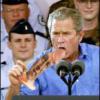Sign in to follow this
Followers
0

Judge Orders Abu Ghraib Photos released
By
CheesalaIsGood, in Current Events

By
CheesalaIsGood, in Current Events